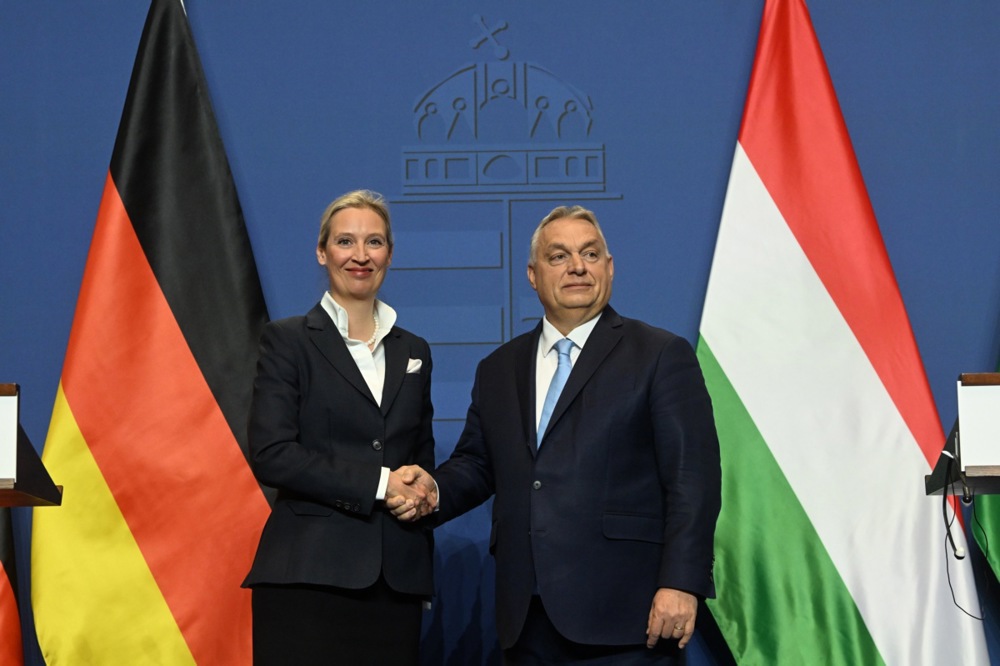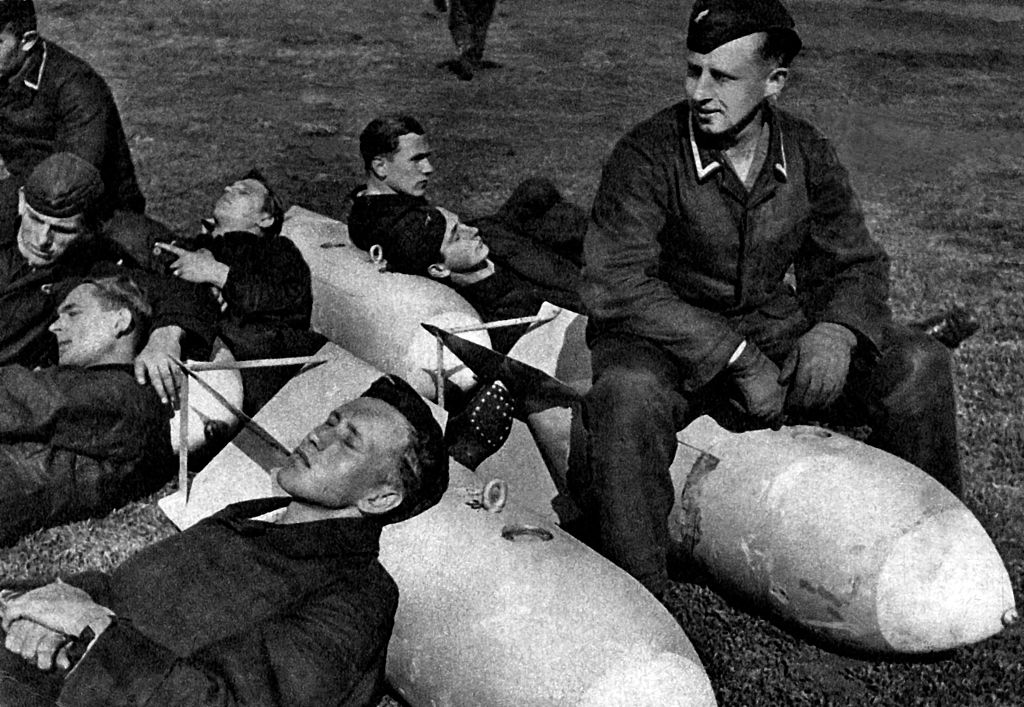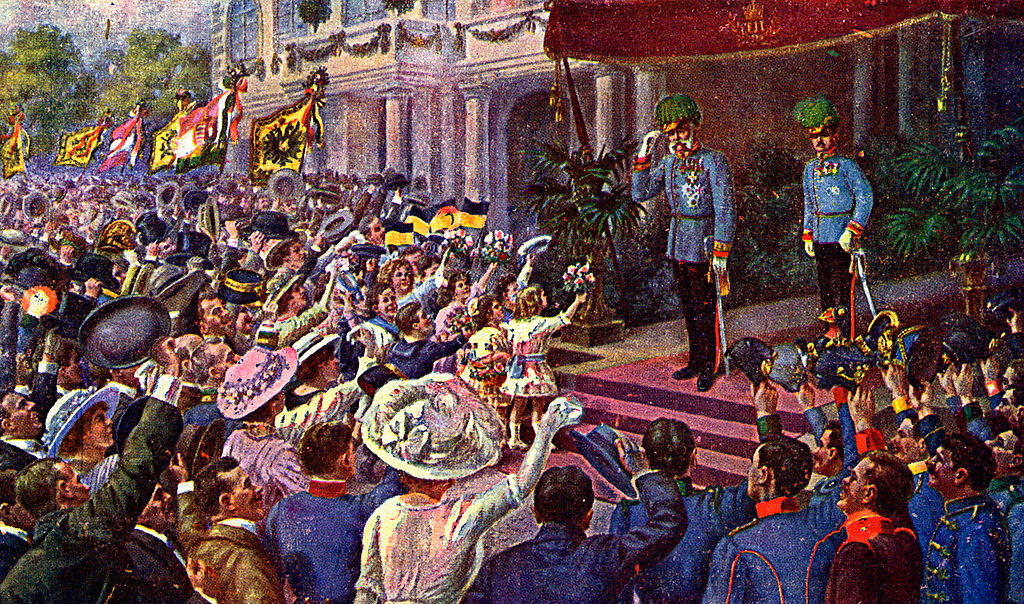Angela Merkel led Germany – and Europe – for sixteen years. She grew up in the German Democratic Republic (the GDR, or East Germany), the daughter of a hard-line communist pastor. That was where she graduated in physics and then trained to be a researcher. Her focus was redirected towards politics by the collapse of socialism, the demise of the Soviet empire, and with it the GDR. After a brief detour, she found her place within the ranks of the Christian Democratic Union of Germany (CDU), in which there were very few young women from the former East Germany – they were far outnumbered by political activists gravitating towards the opposition movement of the Greens (Bündnis 90/Die Grünen) and the Socialists (SPD).
The CDU’s leader was Chancellor Kohl, an authoritative and capable figure who reunified the nation. He took the young, ambitious – and above all power-hungry – Merkel under his wing and smoothed her path. That was until she attacked him from behind and brought him down.
In the run-up to the 2003 Iraq war she betrayed the then-chancellor Gerhard Schröder by taking a stand in the US media against the Franco–German position opposing war, thus siding with an act of aggression by Bush that was based on arbitrary, mendacious arguments.
This was the second time she revealed her true colours.
Merkel was an emotionless, heartless, cold, cruel, pragmatic and vindictive political operator. She did not truly lead Germany, or Europe, because she lacked the necessary imagination, creativity and commitment. She managed things. She was sunk in day-to-day politics, adapting her positions and opinions to the findings of focus groups and opinion polls. As a result, she fatally failed to take any decision that had medium- or long-term consequences. She took no risks, ran every conflict into the sand, blunted them and damped them down. Her guiding principle was, “After me, the flood.”
Merkel was not interested in her country, but in power. She never uttered the word “homeland”, and threw the German flag in the trash can. Germany was her area of operation, and she had no emotional attachment to it. In sixteen years, she never made a single gesture of love or a single expression of emotion. She had no understanding of the word “patriotism”, and no emotional attachment to her nation, her community, her party, or her colleagues.
What interested Merkel was power itself, and she was masterly in the exercise of power for its own sake. But the power that made her the leader of Germany, of Europe, and even – according to some – of the free world, was purely self-interested, and served no long-term purpose for the public good. It therefore proved to be ephemeral.
Merkel did not create anything, and did not build anything. Her time in power was marked by wasted opportunities, missed chances and irredeemably bad decisions that have squandered the future of Germans and Europeans. She robbed them of 16 years, because she diminished both Germany and Europe with her dilatory, indecisive, shiftless, soporific policies. She tore the continent’s societies apart, condemned its economies to stagnation, stifled its capacity for innovation, and extinguished its ambition.
Merkel was a coward. In this sense she almost completely blended into a German political elite that she herself reduced to cowardice. She did nothing to enable the brainwashed, senseless and completely Americanized Germans to straighten their spines and lift up their heads. This is partly because she herself left her spine at the door, and partly because she recognized that it was thus easier to rule them.
Merkel left Germany and Europe in worse shape than it was when she entered office.
This is her real failure.
The problem is simply that she brought down the biggest – and for a long time the richest – country in Europe, leaving the whole continent vulnerable.
The charge sheet against her is considerable. On every critical issue Merkel gave the wrong answer. Whether she was this stupid on her own or whether she was helped is irrelevant: she was chancellor, the responsibility was hers.
Merkel teamed up with the Russians to build Nord Stream 2 at a time when others were being forced into strict compliance with anti-Russian economic sanctions. For example, while we Hungarians were not allowed to supply the Russian market with apples from Szabolcs, they were building together with the Russians and doing trillions of dollars of business with them.
This was justified by saying that it was just business and not politics, and so she could have no say in it. By engaging in this “business”, Merkel defied the Americans, Bush, Obama, Trump and Biden. Meanwhile she ignored the fact that Germany has been under US military occupation since 1944. This is something which Merkel never once spoke out against, never trying to initiate negotiations on the withdrawal of the occupying US forces.
She acted against the German army, and in the process she eviscerated it. She permanently weakened it, and suffocated its fighting spirit with the help of her protégé, the incompetent Ursula von der Leyen. She abolished universal conscription and reduced the armaments and equipment of the troops to the point of absurdity. In 2022, at the time of the shamefully precipitate US withdrawal from Afghanistan, the German army was unable to bring home its contingent there. They had no transport aircraft, and the task was beyond their logistical capabilities.
Merkel left Germany completely dependent on Russian fossil fuels, meaning that – despite the disapproval of the Americans – she did not consider a Plan B. Instead, taking advantage of the fears emerging after the 2011 Fukushima nuclear accident, she made the typically wayward decision to remove Germany from the ranks of countries using nuclear energy. In other words, she started closing down all German nuclear power plants, and set about converting what was then an industrial great power to green energy: to wind and solar.
This was also a political tactic, as she was preparing to replace her grand coalition partner, the SPD, with the party of the media and progressive intelligentsia: the Greens. The Greens had already been in bed with the US neoliberal elite for some time, and had become pro-American and pro-war, but they remained faithful to their anti-nuclear origin myth. Merkel, despite her scientific training, ignored the necessary calculations and intoxicated the ideologically-driven progressive German opinion leaders with the utopian vision of a conversion to green energy. It was of no interest to anyone that wind turbines disfigure the landscape, kill birds and the like; similarly, no one was concerned by the fact that a combination of variable, unpredictable winds and infrequent sunshine can hardly be expected to provide the necessary amounts of energy. The closure of nuclear power plants made Russian fossil energy absolutely essential for energy supply in Germany.
In 2015 Merkel had a dream – one that led her to open the borders of Germany and Europe to unrestricted, unconditional illegal migration. Wir schaffen das (“We can do it”) was her justification for flooding her country and the western part of the continent with millions of African, Afghan, Syrian and other Muslim newcomers, whose countries of origin were glad to be free of them. She did not even think about the fact that they were mostly men of military age who did not speak German and did not want to learn, who were illiterate or barely educated, and who had no idea how to integrate or assimilate into German society. Nor did Merkel notice that the Turks who had arrived thirty or forty years earlier and had stayed as guest workers could not be assimilated by the Germans. Integrating people with strong national identities and strong religious faith is also difficult if the majority society seeking to incorporate them is irreligious, nihilistic, spiritless and limp – if it is full of self-loathing, rejects its own past, expects nothing from its future, and has no enthusiasm for anything.
Merkel also wrecked the German economy. Her dogmatism with regard to balancing the budget discouraged investment and innovation. During a period of financial abundance when interest rates were at unprecedentedly lows, and sometimes zero, she continued to push a policy of mindless austerity rather than take out the huge loans needed to renovate and upgrade Germany’s outdated, ageing infrastructure. As a result, the Germans make a sport out of austerity, serving inedible food and undrinkable beer at state receptions, demonstrating that they are the champions of frugality. Their diplomats do not bring protocol gifts; this is only partly due to their miserliness, as they are also poor at sending letters and emails expressing thanks or greetings.
In Merkel’s sixteen years as Chancellor, both she and Germany aged into shabbiness, greyness and ungainliness. In her monotone, dull and inelegant jackets, pants and shoes, she was the personification of the former GDR, in whose image she moulded the whole of Germany. She abolished freedom of speech, rendering the media uniform, boring and decrepit, and the country’s public figures slovenly and unkempt. Today Germany, once a better place, has become one big GDR.
Under Merkel, Germany fell behind in terms of digitalisation, laying copper cables instead of optical fibre cables. It is far behind our region in terms of wi-fi coverage and internet coverage. It is the last European country in which communication by fax is still widespread. It has not invested in artificial intelligence, in software development, in modern 21st-century industries; it hoped that its key 20th-century sectors would remain sufficient.
They would not.
Merkel intervened in the Russo–Ukrainian conflict, brokering and guaranteeing two successive agreements. These were the so-called Minsk agreements (in 2014 and 2015). She led everyone to believe that she had agreed compromises with the opposing parties that, if respected, would avert a military conflict. They did not, because in February 2022 the Russo–Ukrainian war broke out. Shortly afterwards, Merkel declared that in Minsk she had mediated in bad faith, deceiving the Russians while disguising her aim of buying time for the Ukrainians to arm themselves and prepare for war against Russia.
Merkel has thus made negotiation very difficult for future German leaders who want to reach an agreement with Russia. This is because she gambled away the trust needed for this, and it will be a long time before that trust returns.
In December 2024 Merkel launched an autobiography of nearly 1,000 pages, in which she attempts to retrospectively justify all the decisions she took as Chancellor.
Neither self-reflection nor self-criticism are her strong points.
In February 2025 Merkel finally sent her party, the CDU, crashing to the ground. She stabbed its leader – Friedrich Merz – in the back and made his position impossible after he had tabled a resolution in the German parliament to curb migration, which the AfD also voted for. Merkel said that one must not vote together with the far-right AfD.
In fact she was expressing her implacable hatred of Merz, and speaking out in defence of her own dreadful, disastrous migration policy. Perhaps a brainwashed and intimidated section of the German electorate which has long since lost its powers of critical thinking will listen to her and not vote for a CDU led by Merz. One way or another, there is a good chance that Germany will remain ungovernable, because the obsolete German elite believes that entering into a coalition with the AfD should be forbidden, and indeed it should be isolated on the other side of a firewall (Brandmauer). If this happens, all that will be left will be the CDU, the SPD and the Greens, leaving no prospect for German political renewal or for setting the economy on an upward trajectory.
Merkel’s bad decisions have brought Germany down. Migration has put a huge strain on the welfare budget, driven up real estate prices and, of course, caused a housing crisis. Society’s sense of security has been shaken, and attacks by aggressive, unintegrated migrants keep the population in fear. A depleted army has left Germany vulnerable to increasingly assertive US demands.
For sixteen years Merkel ensured that Germany did not even come close to the two per cent of GDP defence spending required by the US (NATO). The ban on cheap Russian energy, exacerbated by the terrorist attack on Nord Stream 2, has destroyed German industry, has killed off its once thriving chemical sector and justly famous car industry, and has administered the last rites to Germany’s engineering industry. The US is demanding the relocation of German industry to America, and is expected to launch a tariff war against the European economy.
The new US administration may place the burden of the war against Russia on the Germans, while demanding they increase investment in armament and defence capabilities. Returning as leader of the USA is Donald Trump, in opposition to whom Merkel posed as leader of the free world, whom she mocked and lectured, and whom she revelled in obstructing. In this her imitators followed her example.
Merkel has brought down Germany, Europe and her own party.
A pitiful inventory.
Mária Schmidt is a historian and director-general of the House of Terror Museum in Budapest. This article is adapted from the Hungarian-language original which first appeared in the Látószögblog.hu





The Greens are fading now, but I was in Germany with them at the start